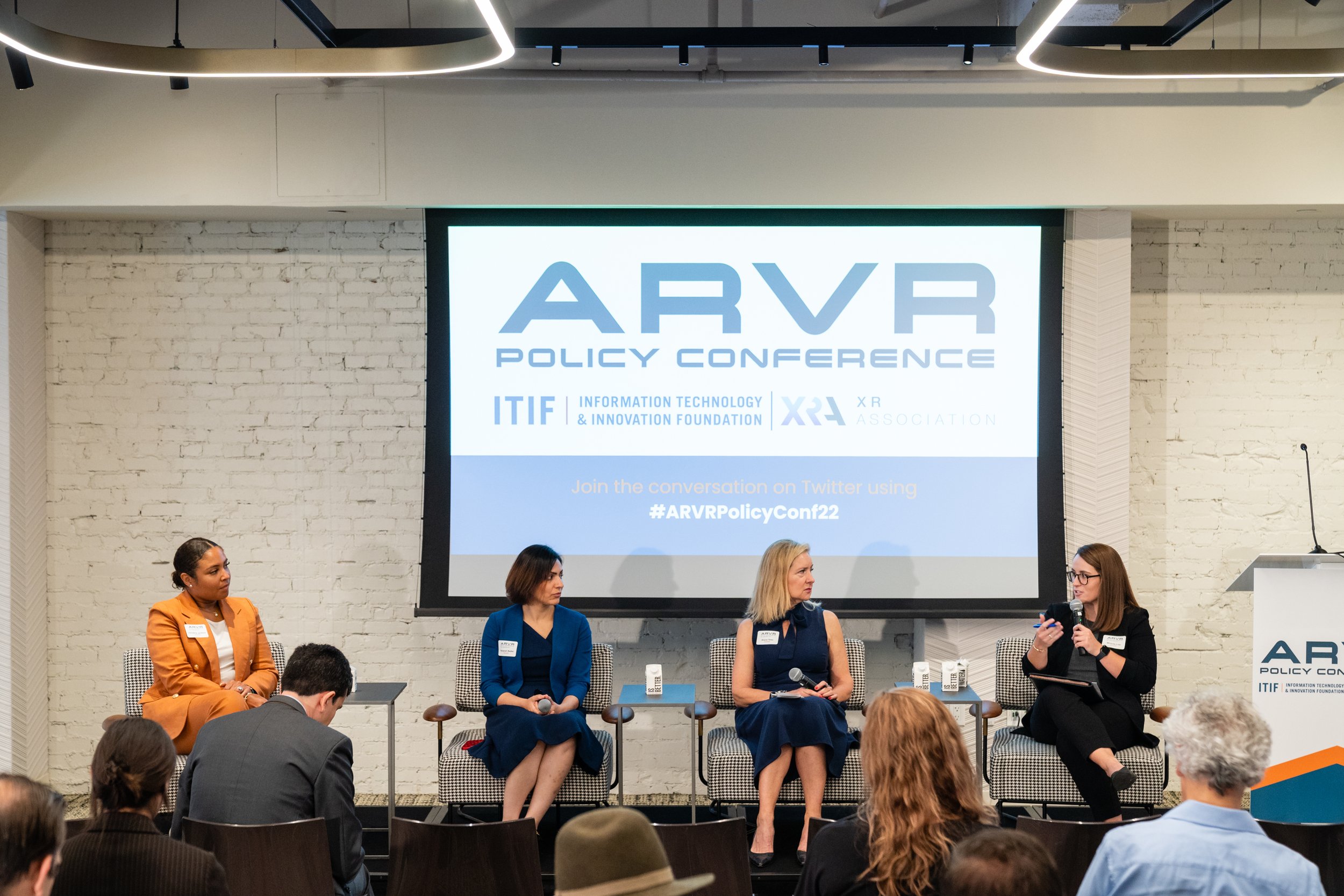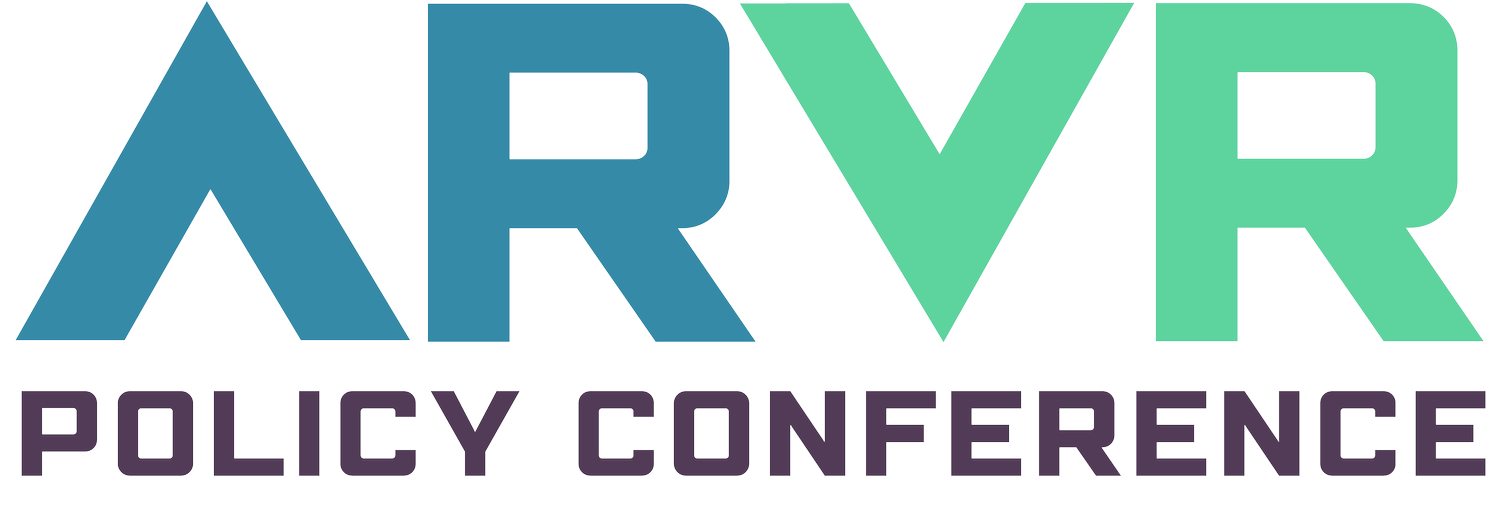
Agenda
The following agenda is subject to change. Speakers to be announced.
9:30 AM
Registration Opens
10:00 AM
Welcome Remarks
Daniel Castro (ITIF)
10:05 AM
Keynote Speaker
Senator Marsha Blackburn (R-TN)
10:30 AM
Panel #1: The Metaverse & World Order: How Immersive Technology Will Impact Global Competition & Cooperation in the 21st Century
Technological innovation, scientific research, and workforce development are enormously important to every country’s economic strength and national security. Governments around the globe recognize this reality, as evidenced by large-scale new investments (like the CHIPS and Science Act of 2022 in the United States) and national strategies (like China’s ambitious “Made in China 2025” project). Immersive technology is an essential part of the future technology ecosystem and is closely tied to the development of other critical technologies like AI, robotics, and quantum computing. And just like the internet of today, the metaverse will transcend geographic boundaries. But what does that mean for metaverse governance? What role will standards play in the evolution of this emerging technology? How can the U.S. and its allies chart a path forward for this technology that strengthens our competitiveness? This panel will explore the ways in which global competition will be impacted by the integration of AR/VR technologies and the importance of global cooperation on metaverse governance.
Hugh Hayden (Niantic)
Charlie Moskowitz (Accenture)
Ugonma Nwankwo (Global Counsel)
Ryan Rhodes (U.S. Department of Commerce)
Joan O’Hara (XR Association) - Moderator
11:10 AM
Panel #2: New Privacy Considerations in the Age of Immersive Technology
Immersive technology is rapidly unlocking not only new applications but also new types of data. These data-intensive technologies capture information about a user’s surroundings, movements, and inputs in order to safely and accurately create an immersive experience. This panel will explore new privacy issues specific to XR including: How is spatial or body data different from the data used by 2D-based services? What challenges and opportunities do these new types of data present? What should industry and policymakers do to protect privacy and ensure responsible development of spatial computing? And how might existing and proposed laws create challenges to privacy in immersive tech?
Dena Feldman (Meta)
Dylan Gilbert (NIST)
Jameson Spivack (Future of Privacy Forum)
Divya Sridhar (BBB National Programs)
Ashley Gold (Axios) - Moderator
11:50 AM
Congressional Fireside Chat
Congresswoman Suzan DelBene (WA-01)
Elizabeth Hyman (XRA) - Moderator
12:15 PM
Lunch Break
1:00 PM
Book Talk: “Debating the Joint Impact of AI and Immersive Technologies on Our Society and Reality”
Alvin Wang Graylin (Author)
Louis Rosenberg (Author, CEO Unanimous AI)
Daniel Castro (ITIF) - Moderator
1:30 PM
Panel #3: Working in the Industrial Metaverse
Immersive technologies have become a catalyst for efficiency and innovation in industrial sectors, reshaping traditional manufacturing processes, enhancing safety, and creating new opportunities for workers. For example, governments and businesses around the world are increasingly investing in digital twins to support urban planning, construction of resilient infrastructure, energy management, and engineering and design. And similarly, use of AR/VR technologies is revolutionizing the factory floor and worker training. This panel will explore the potential implications of the industrial metaverse, including: Which sectors stand to benefit most? How can policymakers facilitate this transition and support the integration of immersive technology to boost industrial capacity? How are companies using XR to support worker training and upskilling in critical sectors?
Josh Bankston (Mace Virtual Labs)
David Chu (NVIDIA)
Troy Hall (U.S House of Representatives Committee on Science, Space, and Technology)
Alex Ambrose (ITIF) - Moderator
2:10 PM
Lightning Talk: User Safety
Brooke Morrill (Schell Games)
2:20 PM
Panel #4: Creating a Safe Metaverse for Young Explorers
Immersive technology holds immense potential to help young people learn, create, and express themselves in new ways. And in fact, young people are often some of the earliest adopters of emerging technology like AR and VR. The use of XR for gaming is perhaps one of the best known applications of the technology and the sector has led the way in developing frameworks for safety-by-design, parental controls, and content/conduct moderation. But gaming isn’t the only way young people are engaging with the metaverse. Already AR/VR technologies are being deployed in the classroom to deepen learning experiences and enhance student engagement. But what does it mean to create virtual worlds from a child development-first perspective? How can industry, civil society, and policymakers work together to develop safety controls and parental tools that are effective and easily accessible? Are current policy proposals for social media effective solutions or are there gaps in application to XR? How can the government better support digital citizenship and literacy? And what role can research play in informing the development of metaverse experiences for young people?
Tarunya Dharmarajan (ConnectSafely)
Carlos Gutierrez (LGBT Tech)
Dileep Srihari (Sony Interactive Entertainment)
Christine Mui (POLITICO) - Moderator
3:00 PM
Break
3:20 PM
Fireside Chat
Ziad Asghar (Qualcomm Technologies, Inc.)
Elizabeth Hyman (XRA) - Moderator
3:40 PM
Lightning Talk: Digital Twins
Anthony Duca (Cavrnus)
3:50 PM
Panel #5: Using AR/VR from Medical School to Patient Care
Immersive technologies are breaking new ground throughout the healthcare ecosystem from using VR to help medical students understand the human body to helping surgeons prepare for complex operations. Immersive technologies are also transforming patient care through cutting-edge mental health treatment, pain management, and physical therapy. This panel will explore how AR/VR technology can enhance patient outcomes and increase access to medical care. Expert speakers will also discuss how existing regulations are shaping the sector and what government can do to support the use of innovative therapies in a way that protects patients’ privacy and ensures equitable access.
Bobby Armiger (Johns Hopkins Applied Physics Laboratory)
Adam Cargill (MediView XR)
Susan Persky (National Institutes of Health)
Alex Ambrose (ITIF) - Moderator
4:30 PM
Closing Remarks
Elizabeth Hyman (XRA)
4:35 PM
Network Reception Begins
6:00 PM
Conference Concludes
For any media inquiries, please contact both Brad Williamson (bwilliamson@glenechogroup.com) and Nicole Hinojosa (nhinojosa@itif.org).
By attending the 2024 ARVR Policy Conference in-person, you hereby acknowledge and consent to being captured in
photographs and videos that may be used by media partners and event organizers for marketing purposes.
